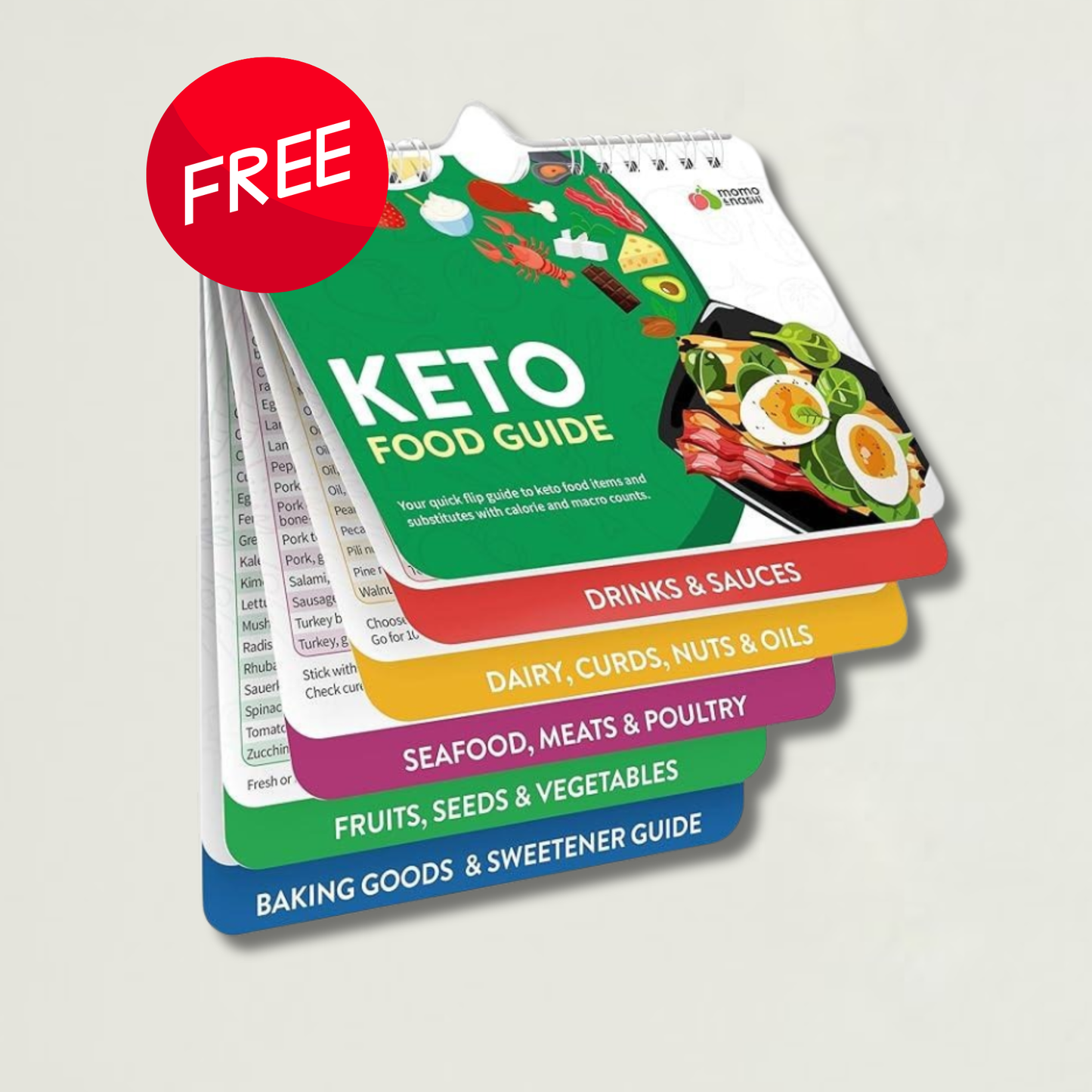Keto Nutrition: The Breakdown

The ketogenic diet is all about flipping your nutritional script. For most people, 50-60% of their daily calories come from carbohydrates, with smaller portions from protein and fat. On keto, this ratio is dramatically reversed. Here's how it works:
Keto Macronutrient Breakdown
- 60-75% of calories from fat: Healthy fats become your primary energy source.
- 15-30% of calories from protein: Protein supports muscle maintenance and satiety.
- 5-10% of calories from carbohydrates: Carbs are limited to keep blood sugar stable and promote ketosis.
The ranges are wide because they depend on your goals and individual factors like body composition, activity level, and metabolism. To personalise these numbers, tools like our keto calculator can give you a starting point.
Foods to Avoid on Keto
To achieve ketosis, you must avoid foods that spike blood sugar or contain hidden sugars, including:
- Refined Carbs: Bread, pasta, potatoes, rice, and snack foods like chips, crackers, and popcorn.
- Sugary Foods: Desserts, sugary drinks, and sauces with added sugar.
- High-Sugar Fruits: Stick to low-sugar options like berries in small portions.
Even artificial sweeteners can derail your progress. Instead, use keto-friendly options like stevia, monk fruit, or xylitol sparingly.
Keto-Friendly Foods
Focus on nutrient-dense, high-quality sources of fat and protein. Here’s a guide to some of the best options:
Healthy Fats
- Avocados: Rich in monounsaturated fats and nutrients.
- Coconut Oil and MCT Oil: Rapidly converted into ketones, providing quick energy.
- Olive Oil: A great option for drizzling but avoid heating, as it oxidises.
- Grass-Fed Butter and Ghee: Excellent sources of healthy fats, especially for those sensitive to dairy.
- Nuts and Seeds: Pecans, walnuts, macadamia nuts, and almonds in moderation due to their calorie density.
High-Quality Proteins
- Grass-Fed Meat: Contains healthier omega-3 fats compared to conventional meat.
- Wild-Caught Fish: Opt for salmon or other low-mercury fish for omega-3s.
- Pasture-Raised Eggs: Packed with nutrients, especially in the yolks.
- Bone Broth: A nutrient-dense option that supports gut health and provides collagen.
Common Mistakes to Avoid
- Relying on Processed Foods: Cold cuts, cheese blocks, and low-quality protein bars often contain hidden sugars and inflammatory omega-6 fats. These can hinder ketosis and increase inflammation.
- Overeating Nuts and Seeds: While healthy, they’re calorically dense, so stick to small portions.
- Ignoring Food Quality: Grass-fed, pasture-raised, and organic options are not just buzzwords—they ensure you’re consuming better-quality fats and avoiding harmful additives.
The Role of Inflammation
Keto is not just about macronutrients; it’s also about reducing inflammation. Inflammatory foods like processed meats, refined oils, and high-sugar snacks can raise insulin and cortisol levels, blocking ketosis and making you feel worse.
Takeaway: Balance Is Key
The keto diet works when you prioritise whole, nutrient-dense foods and balance your macronutrients. By focusing on healthy fats, high-quality proteins, and low-carb vegetables, you can maximise the benefits of ketosis while avoiding common pitfalls.
Ready to start your keto journey? Check out our Keto Diet Guide for personalised tips, meal plans, and tools to make the transition easy and effective.






































